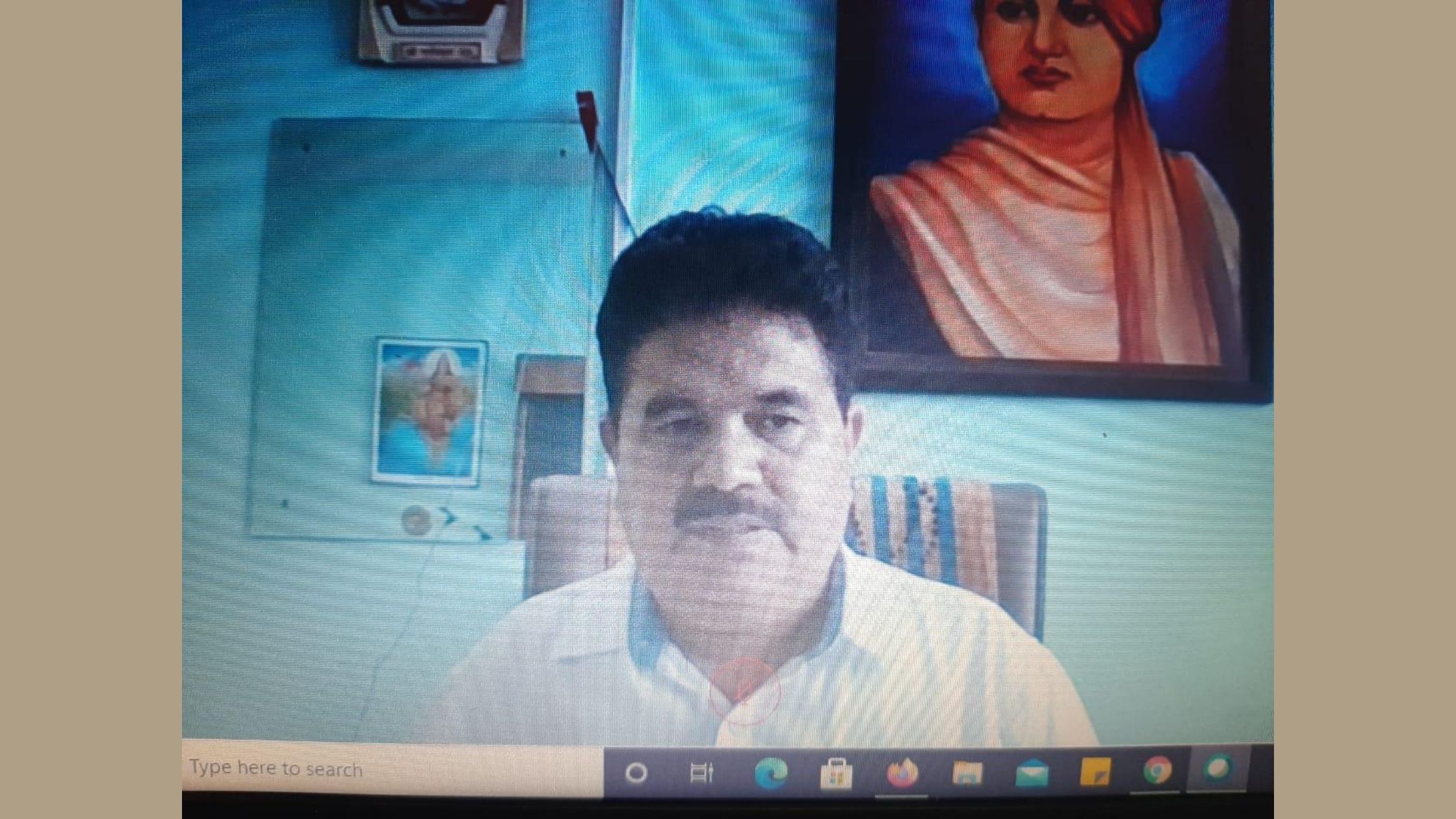Chandigarh August 26, 2020
The Centre for Medical Physics organized a webinar on “ROADMAP FOR IMPLEMENTATION OF NATIONAL EDUCATION POLICY-2020” on 26.07.2020 at 3.00 pm. The Keynote speaker for the event was noted solid state physicist Prof. Nagesh Thakur, Member – University Grants Commission and Professor, Himachal Pradesh University. Prof. Raj Kumar, Vice Chancellor was the Chief Guest of the event.
In the webinar Dr. Vivek Kumar, Chairperson, Centre for Medical Physics welcomed all the participants and presented brief introduction of NEP-2020. “ The National Education Policy, 2020 is built on the foundational pillars of Access, Equity, Quality, Affordability and Accountability” he informed. Prof. Prashant Gautam introduced the Keynote Speaker and Chief-Guest of the event.
Prof. Raj Kumar, in his address requested all stakeholders of education in the country to come together for working towards NEP 2020’s goal of creating a better tomorrow for our children; and a better Indian society for the future. Prof. Raj kumar Informed that Panjab University is preparing an agenda for the implementation of National Education Policy and wished that university will take lead in this regard.
Prof. Nagesh Thakur, in his address said that this policy is going to eliminate the impact of Macaulay from Indian education system. “Blended learning, technology usage, India centric approach and interdisciplinary nature are the key in the implementation of National Education Policy 2020” said Professor Thakur.
He informed that the reforms embedded into NEP 2020 are not only transformational in nature, but represent a comprehensive overhaul of the current education system. Most importantly, these reforms come as an integral part of NEP 2020 and are critical in order to realise the vision of this policy. He was of the view that this education policy will be instrumental in increasing quality of education in India and further making it India centric policy. This is the first time when education has been given a share of 6% of GDP.
In his address Prof. Thakur said that there are many changes that are required, which are fundamental in nature to implement NEP 2020; such as the re-imagining of the current 12 years of schooling into a 15-year period — from ages three to 18 years and splitting the 15 years into four specific blocks corresponding to different levels of child development, establishing special education zones (educational SEZs) to provide access to high quality education, comprehensive changes to skill based curricular approaches, completely transforming teacher education and the set of measures to ensure ‘light but tight’ regulation in order to balance autonomy and accountability of institutions.
In the end Dr. Sanjeev Gautam, UICET organizing committee member concluded the webinar and thanked all the participants.

 हिंदी
हिंदी






